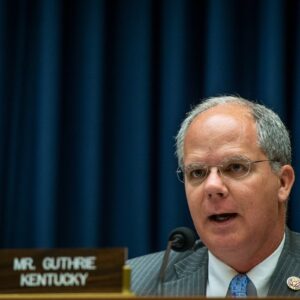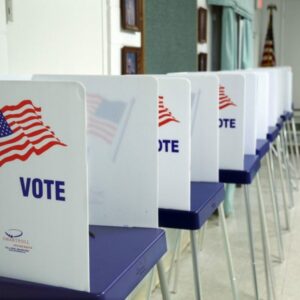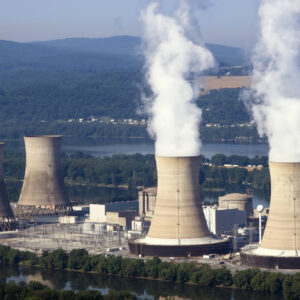"The overwhelming majority of green energy subsidies reward politically powerful constituencies and businesses whose primary purpose is not to build better energy mousetraps but to build only ones that qualify for the largest subsidies."
Harris Has a Policy Problem, not a Values Problem
She failed to reassure voters who are concerned that, at her core, she’s just another left-wing central planner who will make bad policy decisions.
Rep. Brett Guthrie Discusses Conservative Energy and Climate Policies
Congressman Guthrie has been a leader in advancing commonsense energy and climate solutions.
To Make America Great, We Need Federal Permitting Reform
"With a modern permitting system in the United States, we can continue to be a dominant energy producer and capitalize on our carbon efficiency: energy produced in the U.S. is cleaner than nearly every other country in the world. We can reduce our reliance on countries like China for the critical minerals we need to create clean energy technologies like batteries and solar panels. We can modernize our energy infrastructure to strengthen our electric grid and integrate emerging technologies, like clean hydrogen. We can displace dirty energy sources by exporting American-made energy to our allies around the world."
This Election Won’t Be About Climate Change, and That’s Okay
It’s wishful thinking to assume climate change is one of the most important issues leading up to November. It’s not. And that’s okay.
Environmentalists are suing us out of addressing climate change
Emily Domenech and Danielle Butcher Franz write in The Hill about environmentalist efforts to stall climate progress. “Those who advocate for emissions reductions must understand that these goals will not be met by simply opposing everything. Clean energy deployment and active forest management – both crucial climate solutions – will not fall out of the...
It’s Time for Congress to Capitalize on Nuclear Power’s Momentum
Congress can capitalize on the ADVANCE Act by implementing further regulatory reforms to put nuclear power on a level playing field with other energy sources.
The Medal Winners of the 2024 Energy and Climate Olympic Games
America’s athletic success at the Summer Games has inspired C3 to award our own Gold, Silver, and Bronze medals for policies that will improve energy security, lower costs, reduce emissions, and accelerate innovation.
Tim Walz Pick Signals Progressive Confidence on Climate Policy
Harris is doubling down on conventional progressive policy because she can.
Fast Tracking American Innovation
Fast Track provides a flexible, technology-neutral approach to scale the pace of commercialization.









